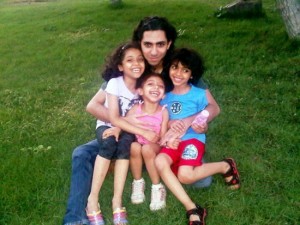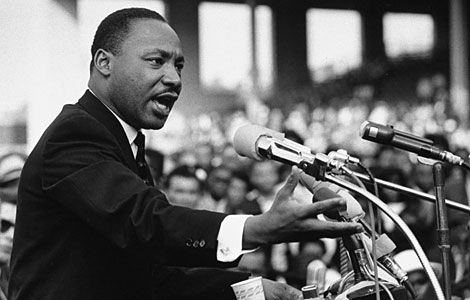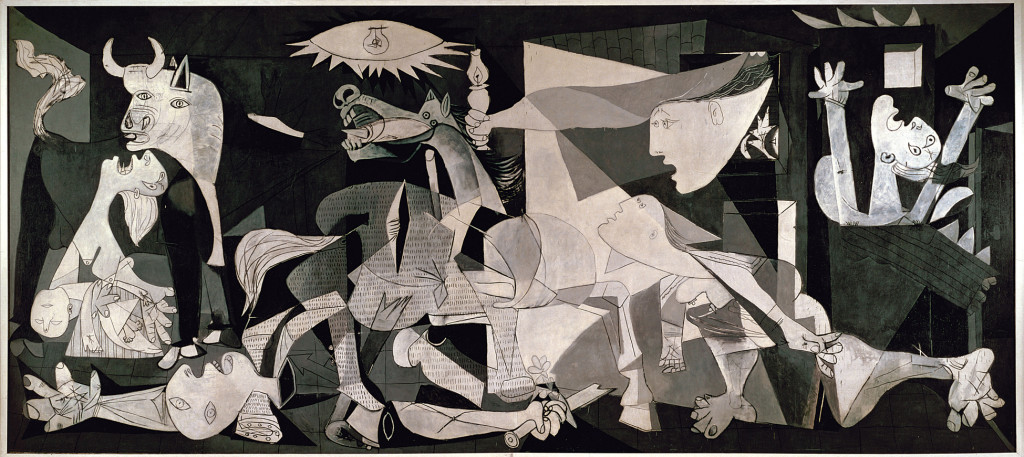 The new year opened as the transits suggested it would, with reactive dogma (Saturn in Sagittarius) against the background of the Uranus-Pluto square, the astrological time bomb of our era.
The new year opened as the transits suggested it would, with reactive dogma (Saturn in Sagittarius) against the background of the Uranus-Pluto square, the astrological time bomb of our era.
The shootings in Paris aroused universal outrage, which has inspired a mass conversation. People’s hearts opened in an outpouring of a worldwide unity. Is this what these horrors are for?
This is the Saturn-in-Sagittarius question. What must happen to provoke us to ask it?
Words
 Magnitude seems to be a primary criterion for an event to qualify as a massacre: the number of living things harmed.
Magnitude seems to be a primary criterion for an event to qualify as a massacre: the number of living things harmed.
Human language has come up with certain terms, redolent with dignity, that are verbal efforts to do justice to otherwise unspeakable suffering. The word “holocaust,” for example, occurred to me during the 2010 BP oil rig explosion.
The Jewish genocide of World War II is also referred to with the Hebrew word Shoah. Another word for unimaginable catastrophe is the Arabic word Nakba, used to refer to the expulsion in 1948 of Palestinians from their homeland.
Numbers
The crimes of Boko Haram deserve a word this strong. These self-proclaimed servants of Allah broke their own record this month, murdering as many as 2,000 in one spree in Baga, Nigeria. If we were to say that the measure of a heinous crime is the vulnerability of its victims, I nominate the 10-year-old “suicide bomber” in that Nigerian marketplace last week. The soldiers put a bomb under her veil and sent her little body into the crowd.
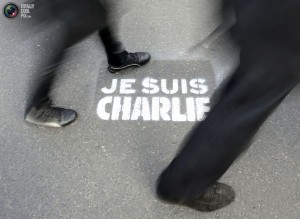 Attention
Attention
But by the litmus test of public outrage, the Nigerian atrocities got scant attention compared to the killings in Paris.
There was nothing on the front page that week about the deaths in Syria, either,(1) although in absolute numbers, this part of the world would top the list every day, every hour.
It may be that the violence in the Middle East is too demanding for Americans and Europeans to understand(2). Sunnis vs. Shiites? Al-Qaeda vs. non-Al Qaeda? Too complicated.
There’s a similar weary resignation in the American media coverage of the astonishing ongoing violence in Mexico, a narcocracy shored up by government corruption.
Eye of the beholder
How do we come up with responses to the horrors of our era?
Part of it is the social influences we’re subject to. Probably a bigger part than we like to admit. Our minds are steeped in a fertile swamp of conditioning from family of origin, generation and social circle.(3) We pick up group values through osmosis like an amoeba in pond water.
A lot of people’s responses are 99% media-derived,(4) and filtered through the official narrative of their country.(5)
Assumptions
Hardest of all to shake off are the hidden assumptions.(6)
 Consider the way we prioritize crimes against humanity. Reading the news, you get the feeling that in order to warrant attention from the Great Powers of the world(7) these days, an atrocity has to meet two conditions: the perpetrators have to be Muslim, and the victims have to be from the First World.
Consider the way we prioritize crimes against humanity. Reading the news, you get the feeling that in order to warrant attention from the Great Powers of the world(7) these days, an atrocity has to meet two conditions: the perpetrators have to be Muslim, and the victims have to be from the First World.
Although the Nigerian killers are Islamists and thus fit the perp profile, their victims, like themselves, are black. This seems to lower their rank on the international outrage meter.
And remember the Norwegian Islamophobe Anders Breivik? He gunned down 77 innocents in 2011, but elicited nowhere near a Charlie-Hebdo-scale reaction. He was the wrong kind of fundamentalist. Though sufficiently crazy and vicious, he was Christian, and  too blond to provoke nightmares in the First World.
too blond to provoke nightmares in the First World.
Center of the chart
Media reaction is not a trustworthy guide in matters of profound ethical urgency. Not if our goal is self-actualization.
During the Saturn-in-Sagittarius years (Dec 23, 2014-Dec 19, 2017) we are meant to be taking more responsibility than ever for our own morality. Essentially, our standards have to come from the center of the birth chart: from the complex human being reflected in our natal map.
An astrologer can infer, from our chart, the broad outlines of the values we’re born with. Our feelings about important collective events reveal and deepen these values.(8) The more detached we are from groupthink, the easier it is to develop this part of our humanness. (“Detachment” in this sense does not mean “failure to feel.” Just the opposite.)
 Neptune in Pisces
Neptune in Pisces
If, however, we ignore world events of immense moral urgency, we will not cultivate our ethical values up to their potential. We’re living with one foot in this lifetime and one foot out of it.(9)
But how do we develop ethical maturity in a world like ours? Pop culture is happy to provide us with an ersatz response to every one of the world’s traumas and joys, at least the ones it deems newsworthy. With Neptune at full strength in Pisces, right now the temptation to disappear into groupthink is stronger than ever.
The online formats bubble and buzz with reactions to current events. But they don’t promote thinking; they promote the having of opinions. These opinions are posted and then instantly forgotten in favor of something else, only a click away. We’re not encouraged to find out how we feel about mass tragedies.
Unless, maybe, a “grievance counselor” is hired after a shooting at our school. How bizarre is this, that a society would have to concoct such an awkward, artificial work-around?
Hypocrisy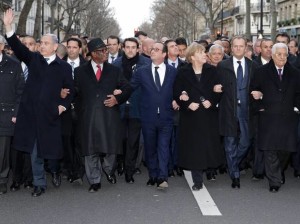
If we’re curious enough to give these things our attention, we may find significant differences between the mass mind’s priorities and our own.
We may find, for example, that we feel more outraged by the presence of hypocrisy than by any other factor. For example, by the high-profile presence at the march in Paris last week of Saudi Arabia, deep and abiding ally of the Great Democracies of the World.
There he was, the sheik’s well-tailored ambassador, linking arms for freedom of expression, on the very day that the young blogger Raif Badawi was given the first fifty of his 1,000 lashes by the Saudi court — a sentence that includes ten years in prison — for the crime of criticizing the kingdom’s clerics.
Or we might find that we’re especially outraged by atrocities in which we are more directly involved, such as those financed by our federal taxes. Right around the time of the Charlie Hebdo attack, a US air strike killed three Afghan civilians. It took place in a remote area where journalists seldom seek out news, and where familiarity has made atrocity less than remarkable.
Three more nameless souls, among the 20,000 who have perished in this forbidding land since Uncle Sam invaded.(10) The army report claimed the dead were Taliban; the villagers said they were farmers trying to protect their land.
 Specific and unique
Specific and unique
 There is no correct response to the atrocities in our midst, any more than there is a simple explanation. Each of us has a relationship to the insanities of our times that is as specific and unique as our relationship to our parents, to our children, to our face in the mirror.
There is no correct response to the atrocities in our midst, any more than there is a simple explanation. Each of us has a relationship to the insanities of our times that is as specific and unique as our relationship to our parents, to our children, to our face in the mirror.
Looking inside of our selves to find that response constitutes serious Saturn-in-Sagittarius work. It is one of the ways we uncover the mystery of our individuality.
We may find bubbling up within us clues from our karmic background: memories that are not part of our documentable history, in which we have perhaps witnessed horrors like the faraway massacres that stir us now.
Everything our world serves up — the best and the worst of it — can, if we fully respond to it, pave the road of our self-discovery. That’s what all of this is about. In responding, we give events meaning; we redeem them. In responding, we grow into wisdom.
As Martin Luther King, Jr — that great exemplar of Saturn, born 86 years ago this week – might have said, the arc of human evolution is long, but it bends towards consciousness.
Notes
1 A UN report in August of 2014 estimated the death toll in Syria to be 191,000.
2 Except for Palestine. There, the international media presents a nice, neat religious dichotomy: Arabs vs. Jews. Simplistic polarities like these presume to 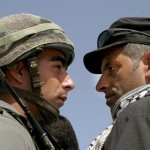 do our moral work for us, encouraging us to declare ourselves “for” or “against.”
do our moral work for us, encouraging us to declare ourselves “for” or “against.”
3 Groupthink has its shining moments, such as exhilarating mass marches for a worthy cause, in which many minds convene with one voice (sometimes literally, as when the Parisians chanted “Je suis Charlie” last week.) Or the crowd in question may be not in the least heart-connected: it may be a mob. Both are expressions of Neptune in Pisces (2012-25).
4 It could be argued that a decisive factor is our access to clean information, or lack thereof. But from a metaphysical point of view, information – like Truth — will find us, if we are motivated to find it.
5 If we believe that where we find ourselves on the face of the Earth in is not an arbitrary trick of fate, then it follows that each of us has a relationship (whether we  approve of it or not) with a certain nation and its mindset. This official narrative purports to provide the meaning of current events, including the relative importance of atrocities.
approve of it or not) with a certain nation and its mindset. This official narrative purports to provide the meaning of current events, including the relative importance of atrocities.
6 A David Remnick article in the New Yorker last August is a good example. He was discussing the current regime in Russia, insightfully and thoroughly, seeming to take into account all points of view. But the underlying assumption, from beginning to end, was that life in the West was superior.
Because it was between the lines, this perspective was not argued as such. Did he mean, the West was better philosophically? Morally? Governmentally? Probably he was taking for granted, as Americans usually do, that democracy is the best form of government the world has ever seen, and that American democracy is the best possible version of it. And had he argued this point, no doubt he’d have been very persuasive. But we’ll never know, because, as a presumed point of view, it went without saying. Unspoken assumptions constitute the most 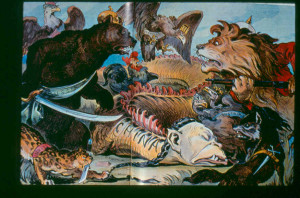 thorough kind of brainwashing.
thorough kind of brainwashing.
7 I prefer their old-fashioned name, The Great Powers; so refreshingly candid, compared to the bureaucratic acronym “NATO.”
8 Or we suppress these feelings, and try not to think about the events — while absorbing their toxicity nonetheless. We may stuff them into our unconscious; whence they leak out as nightmares, psychological stress or physical pain. As cells of the world organism, we feel everything that happens in it.
9 The first question that arises here is typically some variant of “But what can we do?” I think doing (Mars) gets way too much attention. Perhaps not for someone whose whole chart revolves around their Mars. But even for such a person, they cannot arrive at right action until/unless they’ve gotten in touch with deeper emotional and instinctive impulses.
 10 Last month Washington announced that the US war had ended. There was a ceremonial press release on TV. Flags were saluted, taken down, rolled up, and, I guess, flown back to Washington on a valedictory flight. The same press release announced that 11,000 Americans will remain in that ravaged country, to “advise.” As proof that everything’s changed, they’ve given the not-war a brand new name: “Afghan Resolute Support.”
10 Last month Washington announced that the US war had ended. There was a ceremonial press release on TV. Flags were saluted, taken down, rolled up, and, I guess, flown back to Washington on a valedictory flight. The same press release announced that 11,000 Americans will remain in that ravaged country, to “advise.” As proof that everything’s changed, they’ve given the not-war a brand new name: “Afghan Resolute Support.”

